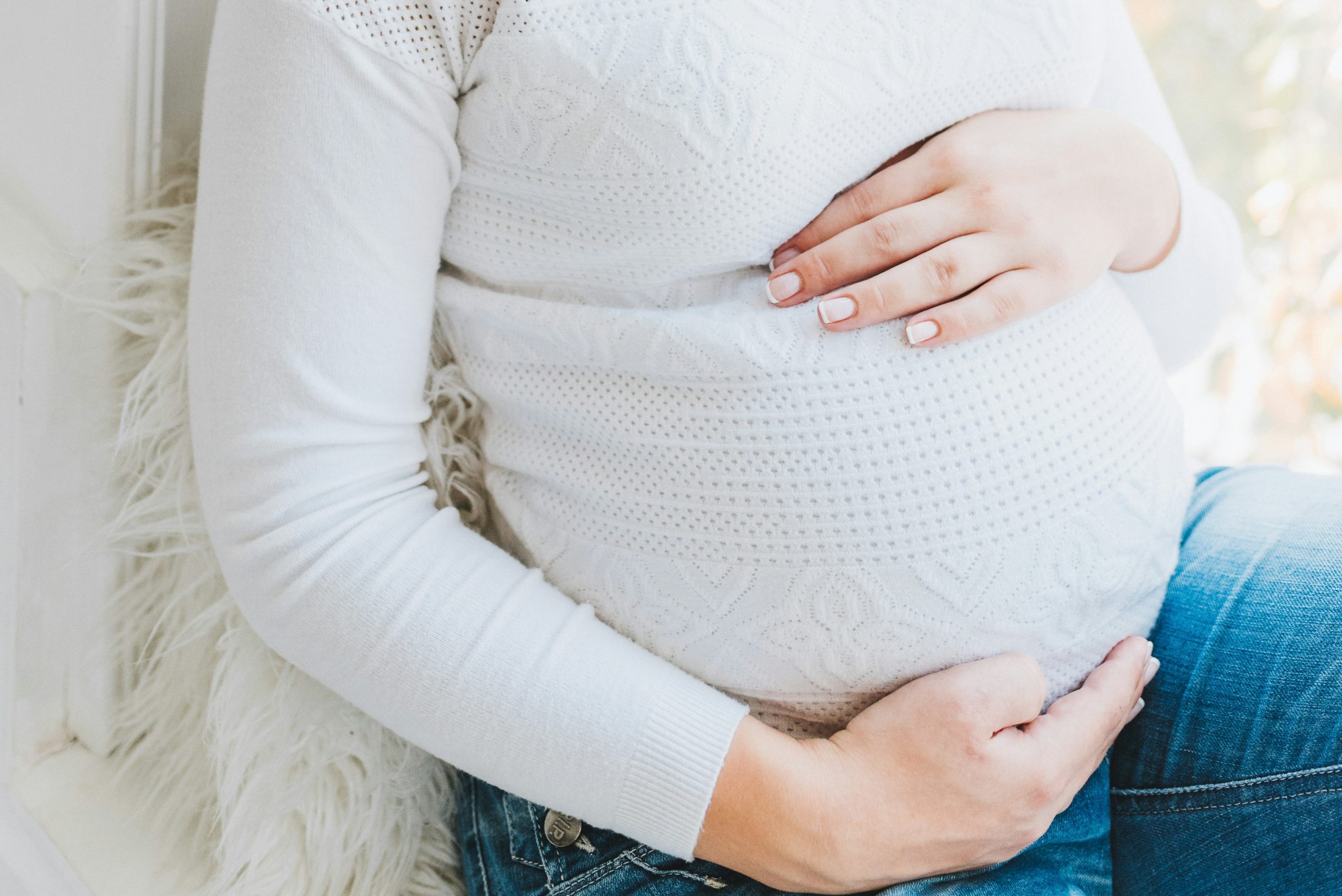When you’re pregnant, a lot of strain is put on the joints of your hip and pelvis due to weight gain and changes in posture. Hormonal changes also affect your muscles and ligaments. Hip pain is common during pregnancy, particularly during the second and third trimesters. A 2018 study reported that about 32% of pregnant women report hip pain at some point during their pregnancy. In this blog we will explain why hip pain in pregnancy happens, how the alignment of your hips support pelvic health. We will also look at how osteopathy can help.
How do hip joints support pelvic health in pregnancy?
Your pelvis is divided nearly halfway down its length by the hip joints. These create two fixed points which support and distribute the downward forces exerted from the weight of your torso as well as the reactive forces that occur upward through the legs. This function of the hip joints works well as long as the hips are well centred. When they aren’t, the organs in the pelvis are put under more pressure, and become congested and inflamed.
During pregnancy this becomes more of an issue, as your growing baby takes up more space in your pelvic region. And blood flow into the pelvis increases in volume, which means drainage needs to be more efficient. So when the hips are out of alignment, it creates more of a challenge to this efficient drainage.
Another reason the hips are especially important to pelvic health in pregnancy is that it attaches, via a ligament, to a membrane that protects some of the vital organs in the pelvis, for instance the bladder and uterus. Every time you walk, this ligament engages the membrane which stretches and relaxes. This in turn creates a rhythmic suctioning effect on the pelvis, which helps drainage.
If there is congestion and dysfunction in the pelvic organs it will cause conditions such as
- Dull pelvic pain
- Changes in bowel movements or urination patterns
- Haemorrhoids
- Swollen legs
- Varicose veins
Exercises for your hips during pregnancy
It’s important to incorporate regular movement into your days when pregnant. While standing, try gently rocking the pelvis from side to side, to help activate the muscles around the hip. If you spend a lot of time sitting, try a Swiss ball instead of a chair – this will engage your muscles more regularly. Other gentle exercise such as swimming and ante-natal yoga can also help.
Can an osteopath help with hip pain in pregnancy?
Our osteopaths look at your body as a whole. So he or she will assess the way your hip moves, and will also look at the function of your lower back and limbs in order to accurately diagnose the cause of your hip pain.
Following your assessment and diagnosis, osteopathic treatment will include physical manipulation to reduce tension and strengthen the muscles surrounding the hips. The goal of treatment is to alleviate pain and regain mobility and freedom of movement.
Finally, your osteopath will provide advice to help you improve your range of movement, through bespoke exercise programs and lifestyle tips.
Book your appointment now
Don’t struggle with hip pain during pregnancy. Our experienced osteopaths can help you regain freedom of movement and enjoy your pregnancy as well as life with your new baby. They are specially trained to offer expert help, with a Mummy MOT qualification. Osteopathy during pregnancy is safe and effective.
Our team can help you get back to your pain-free life as fast as possible. It couldn’t be easier to book your appointment with Osteo & Physio! Book a session via our app, website or call our friendly reception team on 0345 5577788.

